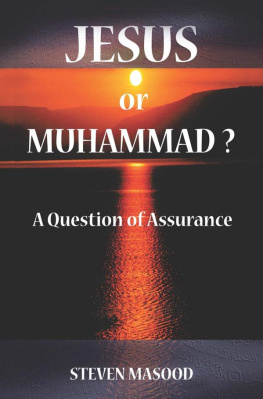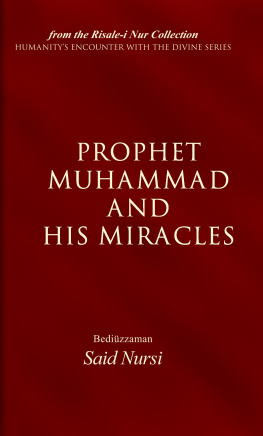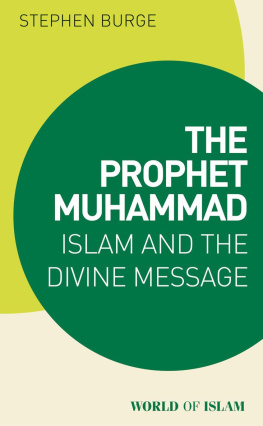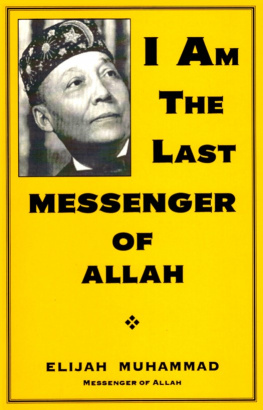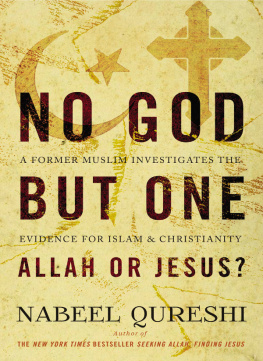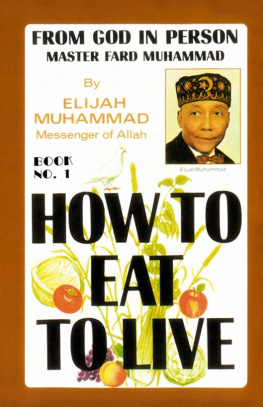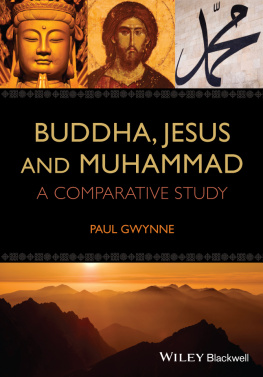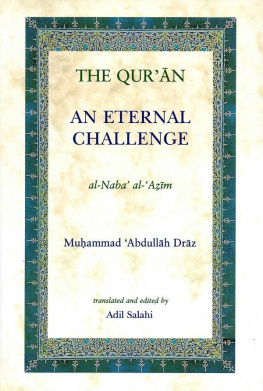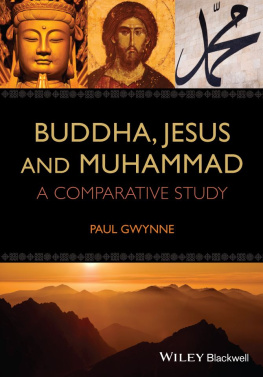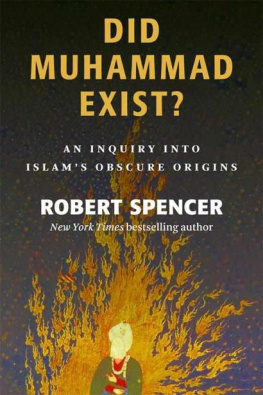Jesus
Or
Muhammad?
A Question of Assurance
Steven Masood
Copyright 2012 by Steven Masood
Jesus or Muhammad?
A Question of Assurance
by Steven Masood
Printed in the United States of America
ISBN 9781624199394
All rights reserved solely by the author. The author guarantees all contents are original and do not infringe upon the legal rights of any other person or work. No part of this book may be reproduced in any form without the permission of the author. The views expressed in this book are not necessarily those of the publisher.
Unless otherwise indicated, Bible quotations are taken from The Holy Bible, New International Version (NIV). Copyright 1973, 1978, 1984 by International Bible Society. Used by permission of Zondervan Bible Publishers.
Cover design by Samuel Mora
While the author has made every effort to provide accurate Internet addresses at the time of publication, neither the publisher nor the author assumes any responsibility for errors or changes that occur after publication.
www.xulonpress.com
T O C HRISTIANS AND M USLIMS
A CKNOWLEDGEMENTS
D edicated to Muslims and Christians who wish to know more about the real difference between Jesus and Muhammad, their claims and the hope they gave to humanity. It is my desire that both sides will know the truth about the vast difference of approach to the eternal salvation.
This book is also for those who have stepped on the trap of inclusivism, whether innocently or intentionally, to present the Islamic faith to non-Muslims more palatable using words like peaceful and loving but not telling that Islam has a different dictionary for such a vocabulary.
This book took shape with the help of many and I express my heartfelt gratitude to them all, to both Muslim and Christian friends on the internet and in person, not just for their many stimulating conversations but also for their searching questions and lively debates.
I am grateful also to my family and to brothers and sisters in faith for their help, Art Dykstra, Lewis and Kathy Dinkins, Marty Shea, and several others who do not want to be named; to Elizabeth Curry, Samuel and DeLynn Mora for their extra efforts with editing, proof reading and suggesting an initial layout and design. However, none of them bears any responsibility for any of the comments expressed and material presented in this book.
Many references from the Bible and the Quran are referred to in this book but not all are quoted in text. To read them and for full understanding of the subject or an issue, a copy of the Bible and of the Quran will be good to refer to.
Unless otherwise indicated, Quranic quotations are adapted from Yusuf Alis The Holy Quran: Text, Translation and Commentary, (Maryland: Amana Corporation, 1983).
Please be aware that often between several Quran translations there is a difference in numbers for respective verses - usually one or two verses, but sometimes up to five. The reader may find that to keep the continuity of the book, I have added the extra info to footnotes.
All dates are AD ( anno domini - in the year of our Lord) unless otherwise stated as BC (Before Christ).
I NTRODUCTION
J esus and Muhammad - considered as reformers by some, prophets by others, regarded by some as infallible, by others as ordinary human beings, denied by some as to whether such personalities ever even existed.
For followers of Jesus or Muhammad, it is vital to make sense of the claims that Jesus and Muhammad made and above all what the Bible and the Quran say about them. Our relationship and vocation depend on who we choose as our guide, lighting our lives in the present and beyond. For Muslims, it is important to know more about Jesus outside the Quran, from the pages of the Bible. Similarly, in the face of modern movements that are preaching co-exist, it is becoming more important for Christians to know about Muhammad and what the Quran and traditions of Islam say about him. This helps further to understand how and why a considerable amount of biblical material turns up in the Quran, texts about Adam, Noah, Abraham, Moses and Jesus.
Both, Muslims and Christians believe that to lead people onto the straight path, God spoke through many prophets. Christians believe that God spoke through Jesus, as his living word, bringing the revelation to completion (Matthew 21:33-39; Hebrews 1:1-2). Jesus is the way to God and is proclaimed as the only Savior of humankind (John 14:6; Acts 4:12). Muslims deny this, stating that God, whom we know as the God of Abraham, Isaac, and Jacob, sent Muhammad as his final prophet after Jesus. They believe that prior to Gods revelation through the pages of the Quran via Muhammad, God revealed his guidance and truth to Jews and Christians through the Torah , Sahayaf (books of the prophets), Zabur (Psalms) and Injil (the Gospel) which are parts of the Bible. It is in the light of such claims that this book attempts to examine the claims of Christianity and Islam, based on their respective books.
Islam and Christianity are missionary faiths. The missionary dimension of Islam is based on its claim that the Quran is a revelation for everyone and that Muhammad is the final prophet. Thus they consider Islam to be the only way of guidance to God (Sura 3:25; 33:40; 21:107; 3:19). Muslims preach, share and invite people to convert (or as some Muslims insist on the word revert) to Islamic faith in light of the Quran. Centuries before, Christians (followers of Jesus) were commissioned in the Bible to share the gospel, the good news about Gods plan of assurance with everyone (Matthew 28:19-20; John 20:21; Acts 1:8).
Both the Bible and the Quran state that truth stands out clear from error (Sura 2:256; Acts 5:33-40). I have based this study on the respective Scriptures, the Bible and the Quran, and what Muhammad and Jesus have claimed or shown by their examples. In our approach and study of the Bible and the Quran, the focus shall be on God as the creator, on the guidance he gave to us as human beings, and the way he relates to us. We will compare some key details of high profile personalities chosen by God and how the Bible and the Quran relate to them. Considering their lives we will have a closer look at aspects known as salvation and assurance, examining them in the light of the Quran and the Bible, as well as what Jesus and Muhammad each have to offer us.
In my previous book, I have already discussed the preservation of the text of the Quran and the Bible, which will not be a subject matter in this present study. The following note concludes The Bible and the Quran: A Question of Integrity : (Please read the book to address your questions on the accuracy of the texts).
Both the Bible and the Quran have the message well preserved. The question is not of preservation but of salvation, Najah . What do these scriptures say about what we are and where we are heading? Both Muslims and Christians pray repeatedly for the forgiveness of their sins, and for the mercy of God, hoping to be accepted into His paradise. However, the question is whether one can be sure of that acceptance in the light of the Bible or the Quran. Both Muslims and Christians should be considering and sharing what their scriptures have to say about the fundamental question of salvation, Najah .
This book, Jesus or Muhammad , goes into the details of the above questions. Much of the uniqueness of the messages of the Bible and of the Quran includes the character of Jesus and Muhammad. In this book, we will compare the two individuals in order to understand them and their messages in a better way in response to the above questions. In the last sections of the book, some subjects are opened with Muhammad, and then germane comparisons are selected from the life, times and teaching of Jesus.
At times you will feel that I am addressing two different audiences, each with their own conceptual frame of reference. To a certain extent, this is intentional on my part. I find it the optimal way of reaching the goal set in this book that goal being to help both Muslims and Christians understand the values of their leaders and see for themselves who and whose message they should choose to follow with the question of eternity is at stake.
Next page
